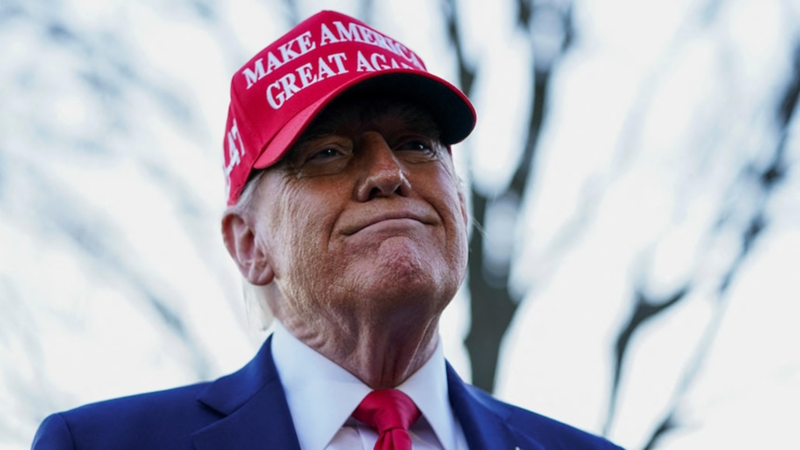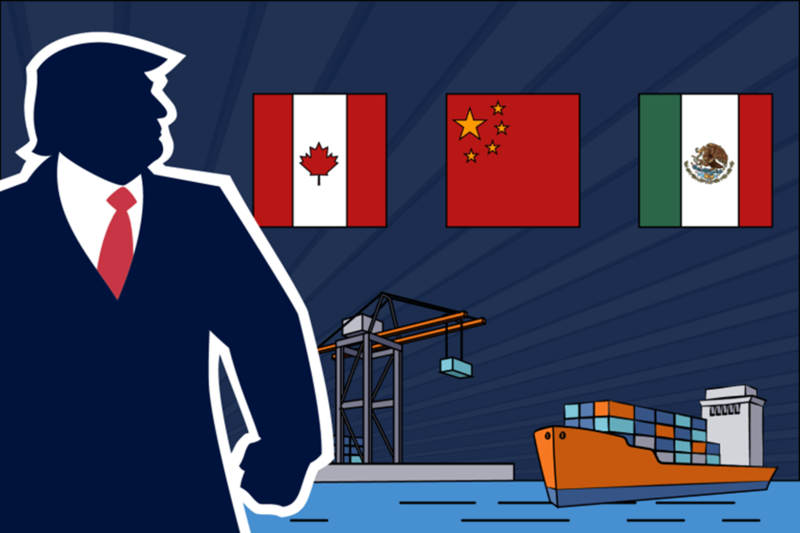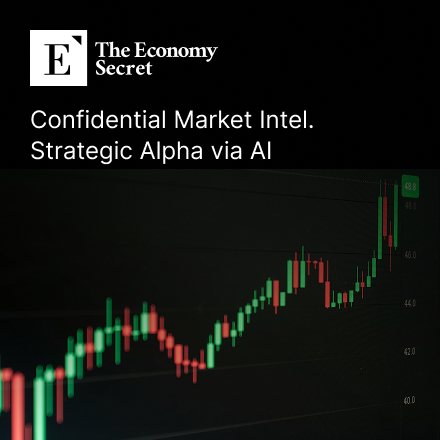Input
Changed
The New Wave of Tariffs: Trump’s Justifications and Global Reactions Economic Fallout and Retaliation: How the World is Fighting Back Diplomatic Strains and the Future of Global Trade Relations

The New Wave of Tariffs: Trump’s Justifications and Global Reactions
Trump’s renewed tariffs on Canada, Mexico, and China have ignited a fresh global trade war, triggering swift retaliatory measures, economic instability, and heightened geopolitical tensions. As consumer prices rise, supply chains falter, and diplomatic relations sour, the world watches to see whether this aggressive strategy will yield economic gains or backfire disastrously.
Donald Trump, the president of the United States, has reinstated his signature protectionist policies by imposing severe tariffs on Canada, Mexico, and China. This action has sparked widespread global apprehension. This action, which bears similarities to the trade conflicts of his first term, has rekindled tensions with some of the United States' largest trading partners and has induced uncertainty in global markets.
Trump implemented a comprehensive 25% tariff on all commodities imported from Canada and Mexico on March 3, 2025. An additional 10% tariff was imposed on Canadian energy products. China, which was already embroiled in an economic dispute with the United States, was confronted with a tariff increase from 10% to 20% on a wide range of products. Under Trump's administration, these actions were justified by a variety of rationales that have evolved over time.
At first, the administration asserted that the tariffs were intended to reduce the flow of fentanyl and unauthorized migration from Canada and Mexico. Nevertheless, Trump reoriented his stance as criticism intensified, arguing that the tariffs were essential to address the trade deficit, support domestic manufacturing, and combat what he perceived as unjust trade practices by foreign governments. The absence of a consistent narrative has resulted in substantial confusion among the public and policymakers.
Although Trump's supporters regard these measures as a critical step toward economic strength and self-reliance, economists and industry leaders caution that they may have the opposite effect, resulting in increased consumer prices, retaliatory actions, and disruptions to supply chains. The tariffs have been met with a hasty backlash from the affected nations, indicating a rapid deterioration of trade relations.

Economic Fallout and Retaliation: How the World is Fighting Back
The swift and severe response from Canada, China, and Mexico underscored their reluctance to accept trade restrictions without repercussions.
Immediately following Trump's tariffs, Canadian Prime Minister Justin Trudeau announced retaliatory tariffs of 25% on C$30 billion worth of U.S. products, including food, textiles, and furniture. He referred to the tariffs as "totally unacceptable." The Canadian government has proposed that these countermeasures could be further expanded, potentially impacting up to C$125 billion in U.S. imports. This retaliation poses a significant threat to American exporters, particularly those in the agricultural and manufacturing sectors that depend on Canadian markets.
China's response was equally pointed. China has expanded its "unreliable entities" list to include American companies such as Google, in addition to imposing tariffs of up to 15% on critical U.S. agricultural exports, such as soybeans, pork, and beef. In addition, the Chinese government initiated an antitrust investigation into Google, indicating a more extensive intention to challenge the economic dominance of the United States in both trade and technology. Given China's substantial influence on global supply channels, the consequences of these measures may extend beyond the United States and influence international markets.
Mexico has also committed to implementing retaliatory tariffs, although the specifics are still being explored. President Claudia Sheinbaum has reassured Mexican businesses that her administration is developing countermeasures to protect their economy. These retaliatory measures could have profound consequences on cross-border commerce, given the deep economic ties between Mexico and the U.S., particularly in the automotive and agriculture industries.
It is anticipated that these tariff conflicts will have substantial economic repercussions in addition to the diplomatic fallout. One of the most imminent consequences will be an increase in consumer prices throughout the United States. Businesses will invariably transfer these expenses to consumers as tariffs increase import costs, resulting in increased prices for commonplace items such as electronics and household items. This inflationary pressure could have a disproportionate impact on low- and middle-income households, which could further complicate domestic economic stability.
Global supply channels, which are already contending with the residual effects of the COVID-19 pandemic and previous trade disruptions, are subject to further disruptions. Complex international networks are expected to result in increased costs and delays for industries that depend on them, including the pharmaceutical, electronics, and automotive sectors. Investors are wary of the protracted uncertainty surrounding trade relations, which has also resulted in volatility in financial markets. Although some market participants anticipate potential compromises or government interventions to mitigate economic damage, others are concerned about the potential for prolonged instability to discourage investment and economic growth.

Diplomatic Strains and the Future of Global Trade Relations
In addition to economic concerns, Trump's tariffs have reignited geopolitical tensions, which may have long-term diplomatic repercussions. The relationship between the United States and China, which is already fraught as a result of past trade conflicts, military posturing in the South China Sea, and concerns over technological dominance, is expected to deteriorate considerably. It is worth noting that U.S. Defense Secretary Pete Hegseth has intensified his rhetoric, asserting that the United States is "prepared" for potential conflicts with China in response to Beijing's vehement opposition to the tariffs. Although this statement is likely intended as a demonstration of fortitude, it has the potential to escalate an already volatile situation and increase the probability of economic and military conflict.
In the interim, Trump's approach to Canada and Mexico, which represents a significant departure from the previous administrations' initiatives to promote collaboration within North America, has prompted apprehension regarding the future of regional economic alliances. The United States-Mexico-Canada Agreement (USMCA), which succeeded NAFTA, was designed to establish a more predictable and equitable trade environment among the three countries. Nevertheless, these new tariffs have the potential to undermine its fundamental objectives and may prompt Canada and Mexico to pursue alternative economic partnerships.
Tariffs have historically been a double-edged sword for the U.S. economy. Trump had previously justified trade conflicts as a means of securing better trade deals; however, the economic disruptions they caused frequently outweighed any short-term gains. The tariffs imposed on China during his first term resulted in a protracted trade conflict that had a detrimental effect on American farmers and manufacturers. Many economists are apprehensive about a recurrence of the situation, which carries the additional risk of alienating critical allies at a time when global economic cooperation is essential.
The path that lies ahead remains uncertain. Although the Trump administration has suggested that additional tariff increases may be implemented, there is an increasing level of political opposition on both a domestic and international scale. A number of U.S. business executives and lawmakers from both political parties have expressed apprehension regarding the potential economic repercussions, with some advocating for negotiation-based solutions rather than escalation.
An economic, diplomatic, and political chain reaction has been initiated by the resurgence of Trump's trade war policies. Although his administration maintains that these tariffs are essential for national and economic security, the retaliatory measures taken by Canada, China, and Mexico suggest that the international community is unwilling to accept such aggressive trade restrictions without a response.
Key questions persist as the world prepares for the effects of these tariffs: Will these measures achieve their intended economic objectives, or will they backfire, resulting in increased costs for American consumers and businesses? Is there still potential for negotiation, or will diplomatic relations with significant trading partners be irreparably harmed? And most importantly, will the global economy be able to sustain the turbulence of another extended trade war?
Whether Trump's bold trade gambit is a strategic masterstroke or a high-stakes miscalculation with enduring consequences for the U.S. and the global economy will be revealed in the coming months.












